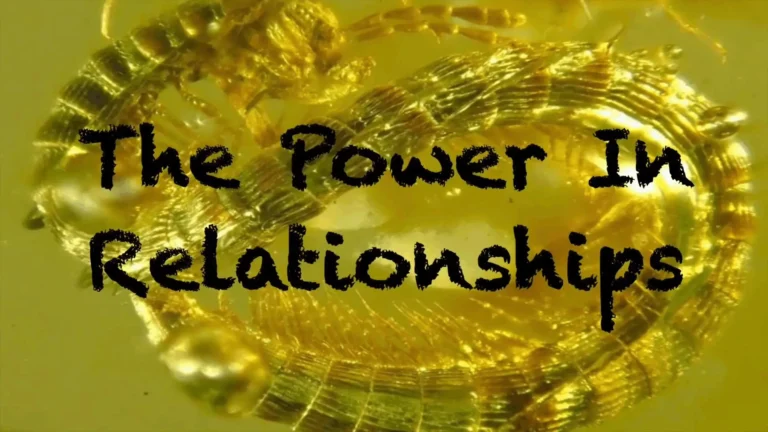Trust

Main Ideas
- 🤔 Trust is essential in human relationships and can be used to your advantage if you understand what creates it.
- 🚦 Understanding someone’s motivation is crucial for determining whom you can trust in different situations.
- 🏡 Trust is based on the motivation to maintain a happy family and not risk destroying it.
- 🤔 Trusting someone depends on understanding their motivation, and aligning your own motivation with theirs can lead to trust.
- 🤯 Trust means knowing what somebody is going to do before they do it, based on understanding their motivations.
- 💡 Aiming for a common project or vision with someone can lead to a stronger and more trustworthy relationship than aiming for a subjective state like happiness.
- 💑 Building trust in a relationship requires a common, specific goal that is constantly reiterated and worked towards together.
- 🌟 It’s important to have a common vision that motivates both partners in a relationship.
Why Trust is Essential in Relationships
The Importance of Trust
Trust is a fundamental aspect of human relationships. While some may argue that trusting others can be risky, the truth is that our lives as human beings depend on trust. Trust allows us to form bonds with other people, rely on them, and create meaningful connections. By understanding what creates trust and why it is essential, we can harness its power to our advantage.
Building Trust: Understanding Motivation
One key factor in building trust is understanding the motivation of others. When we trust someone, we are confident in their intentions and actions.
For example, when crossing the street, we trust that drivers will stop at the zebra crossing to ensure our safety. We rely on their motivation to avoid trouble with the law, as hitting a pedestrian would result in legal consequences.
A similar situation arises when ordering food at a restaurant. We trust that the person behind the counter will take our money, put it in the cash register, and return with our meal. This trust is based on their motivation to keep their job and fulfill their responsibilities.
The Role of Motivation in Trust
Understanding someone’s motivation is crucial in determining whether we can trust them. For example, if a person’s motivation is solely to have a good time and seek temporary enjoyment, it may be challenging to trust their loyalty in a long-term relationship. However, if their motivation is to build a strong, happy family, they are less likely to betray you or prioritize short-term pleasure over lasting commitments.
It is essential to pay attention to both words and actions when assessing someone’s motivation. If there is a disconnect between what someone says they want and how they behave, it may indicate a lack of trustworthiness.
Trust in Common Goals
The strongest bonds of trust are formed when individuals share a common vision or goal. In business partnerships, for example, trust is built on a shared motivation to achieve specific objectives. If both partners are driven to build the best airplane possible, trust can thrive. However, if one partner’s true motivation is drug abuse rather than business success, trust becomes impossible.
Similarly, in personal relationships, trust develops when both individuals share a common vision. If a couple’s goal is to have a loving family with multiple children and create a nurturing home, trust can flourish.
The shared motivation to build a strong family creates a foundation of trust, as both partners understand the importance of their commitment to each other and their common goal.
Understanding People’s Motivation
Understanding people’s motivation is a skill that can be developed through observation and empathy. By paying attention to what drives others and aligning our own motivations with theirs, we can establish trust. This understanding allows us to anticipate their actions and build reliable connections.
Classic novels, such as those written by authors like Dostoevsky, Dickens, and Tolstoy, offer valuable insights into human motivation. These literary works reveal the hidden motives behind characters’ actions, helping readers gain a deeper understanding of human behavior. By appreciating the complexity of motivation, we can navigate relationships with a greater sense of trust.
Subjective Feeling vs. Objective Vision
Trust becomes particularly challenging when the desired outcome is a subjective feeling, such as happiness. Subjective feelings can vary greatly from person to person, making it difficult to establish trust. If both partners in a relationship seek only personal happiness, their paths may diverge, leading to a breakdown in trust and commitment.
However, when individuals share an objective vision, such as building a loving home and raising a family, trust becomes more attainable. By constantly reinforcing this shared vision and working towards it together, trust is strengthened. Both individuals commit to the common goal, ensuring that their actions align with the mutual motivation.
The Fallacy of Distrusting Women
It is misguided to claim that women cannot be trusted. The ability to trust others is not gender-specific; it stems from understanding their motivations. Statements like “you can’t trust women” reflect a lack of understanding and empathy towards others.
Trusting women, or anyone for that matter, requires delving into their motivations and finding common ground. By establishing a shared vision and continuously communicating about it, trust can be fostered. Dismissing an entire gender as untrustworthy is a result of self-centeredness and a failure to comprehend the complexities of human nature.
Conclusion
Trust is a vital aspect of human relationships, and understanding motivation is key to establishing and maintaining trust. By recognizing the factors that drive others, we can anticipate their actions and build strong connections.
Trust thrives when individuals share a common vision or goal, ensuring that their motivations align. While subjective feelings can be fickle, objective visions offer a solid foundation for trust. Trusting others, including women, is not a matter of gender but rather an understanding of human motivation. By fostering trust, we can create meaningful, fulfilling relationships.






